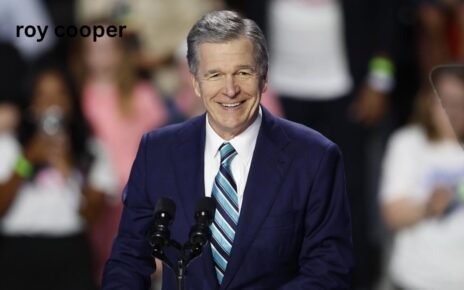When controversy meets cuisine, sparks fly—especially when leading legal minds are involved. In a recent uproar, Alan Dershowitz found himself at the center of a heated “pierogi incident” that Jonathan Turley, acclaimed constitutional law scholar and national legal commentator, used to highlight what he sees as a glaring case of “Leftist hypocrisy.”
The Pierogi Stand Showdown: What Happened?
During a farmer’s market appearance, legendary defense attorney Alan Dershowitz, known for his representation of controversial figures including Jeffrey Epstein and Donald Trump, was refused service at a pierogi stand. He claimed the refusal stemmed from his political stances and identification as a Zionist.
The stand owners—who share Dershowitz’s Jewish heritage—firmly rejected those claims, citing his role defending high-profile criminals as their primary concern. When Dershowitz returned to confront them, tension escalated: a crowd promptly formed, voices rose in protest, and ultimately he was escorted out by market management.
It wasn’t just a minor clash—this moment fueled a broader conversation about free speech, personal responsibility, and public judgment.
Turley Weighs In: A Lesson in “Pierogi Politics”
Jonathan Turley, a constitutional law professor at George Washington University and a frequent Fox News contributor, seized on the incident to point out what he considers inconsistency between liberal ideals and liberal actions. He argues that the same individuals who champion tolerance and inclusion often repudiate those with whom they disagree, especially in culture-driven contexts.
In a media commentary, Turley referenced the incident to warn against the dangers of ideological bullying: when dissenting views—even controversial ones—are met not with dialogue but exclusion, the democratic principle of free exchange erodes.
His core assertion: Political identity should not become the basis for social ostracism—especially by those who claim moral high ground.
Turley’s Broader Perspective on Leftist Contradictions
This episode fits into Turley’s larger critique of what he perceives as a double standard in progressive circles: demanding open discourse and empathy, while simultaneously punishing deviation. As a scholar, he has frequently called out cases where “cancel culture” silences dissenting views, even when coming from respected figures.
From campus speaker bans to corporate censorship, Turley sees a pattern: political loyalty sometimes overrides foundational values like free speech and fair treatment.
Dershowitz’s Role and the Legal-Political Tightrope
Alan Dershowitz is no stranger to controversy. His career has spanned landmark criminal cases and divisive political battles. Whether one agrees with his clients or not, his presence in the legal arena is built on a steadfast defense of due process—even for unpopular figures.
Turley’s mention of Dershowitz isn’t merely about politics—it’s about principled consistency. Even individuals with objectionable views deserve the right to engage. Denying them that breaks with the ethos of a free society.
What the Public Reaction Reveals
The outcry that ensued—from both supporters Jonathan Turley and detractors—reflects America’s divided reality. Social media buzzed with arguments about:
- Freedom vs. responsibility: Did Dershowitz provoke the situation?
- Identity politics: Did the stand owners respond based on ideology or moral stance?
- Public vs. private sphere: Should legitimate outlets refuse service based on public actions?
Turley reminds us that unchecked public shaming risks replacing healthy discourse with moral absolutism.
Context from Turley’s Legal Commentary
Turley’s criticism isn’t limited to this incident. He has similarly addressed other legal hot spots, including:
- Supreme Court immunity rulings: He cautioned against alarmist media coverage that misconstrues nuanced legal outcomes.
- Political prosecutions and media bias: Turley has repeatedly highlighted how legal arguments—left or right—should be evaluated on their merits, not through partisan lenses.
He consistently urges legal and political actors to resist sensationalism and adhere to foundational principles.
Reflecting on the “Pierogi Politics” Incident
Summarizing the implications:
| Key Issue | Insight from Turley’s Analysis |
|---|---|
| Cultural response | Opposition may come from moral disapproval—not bigotry |
| Ideological balance | Tolerance must extend to ideological opponents |
| Legal principle | Due process shouldn’t end at the pierogi stand |
| Public behavior | Disagreement doesn’t justify exclusion |
Why This Matters for Americans
At a time when societal polarization seems to deepen daily, this seemingly trivial episode holds serious lessons:
- It reminds us that consistency matters—do we preach inclusion or practice exclusion?
- It challenges us to live up to democratic ideals, even when confronted with unsavory individuals.
- It shows how public spaces—like a humble food stand—become battlegrounds for deeper cultural debates.
Turley’s reflection isn’t about defending Dershowitz—it’s about defending principle.
Final Thoughts: Finding Real Tolerance
Alan Dershowitz’s pierogi confrontation might have seemed small-scale, but Jonathan Turley’s response draws out a larger moral. Free societies don’t crumble because of disagreement—they crumble when disagreement becomes exclusion.
If Americans still want to claim that they value freedom of expression, they must remember: it applies to everyone—even the person whose politics you detest. That’s the lesson Turley hopes we take from this unlikely pierogi showdown.



